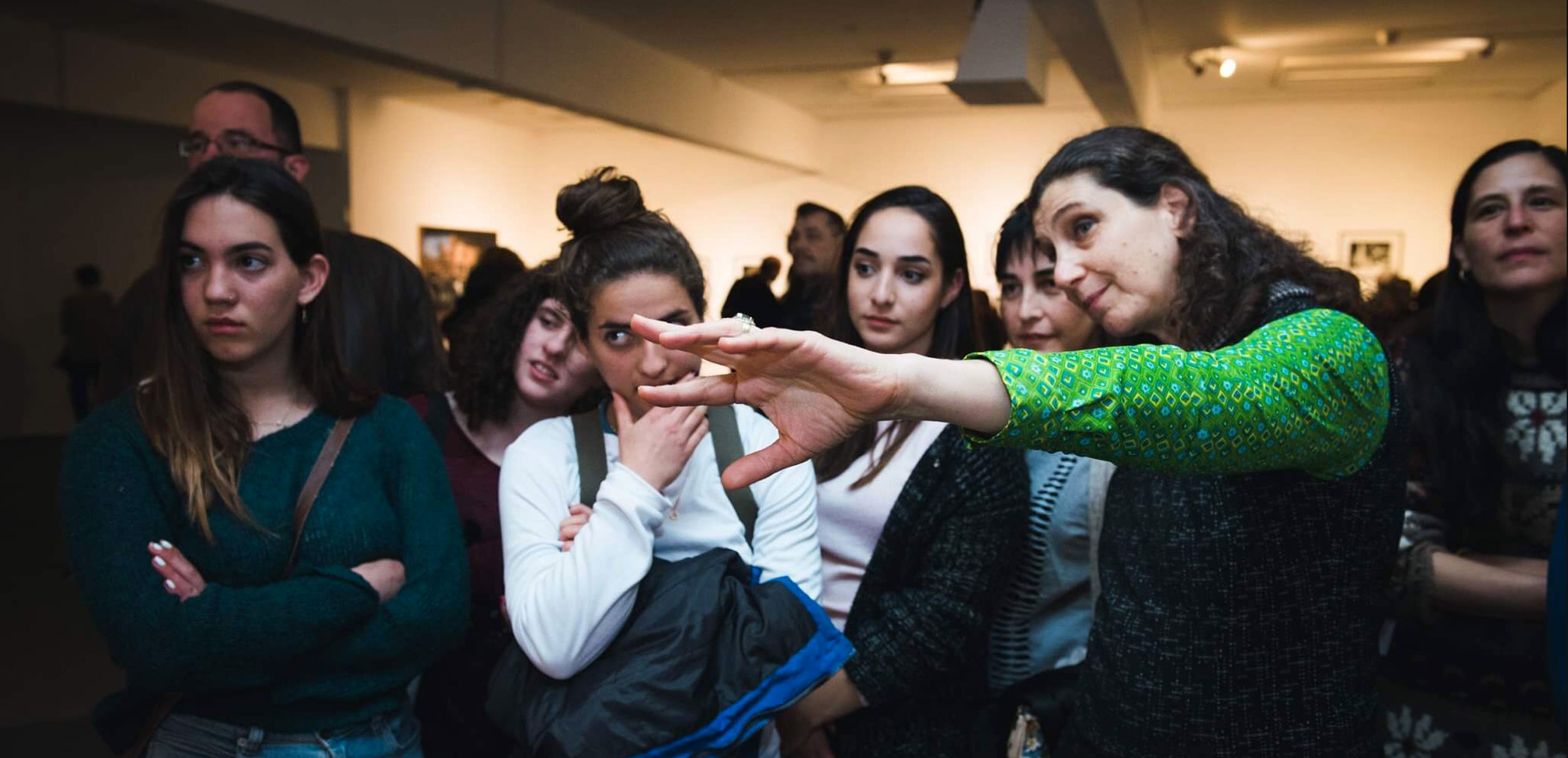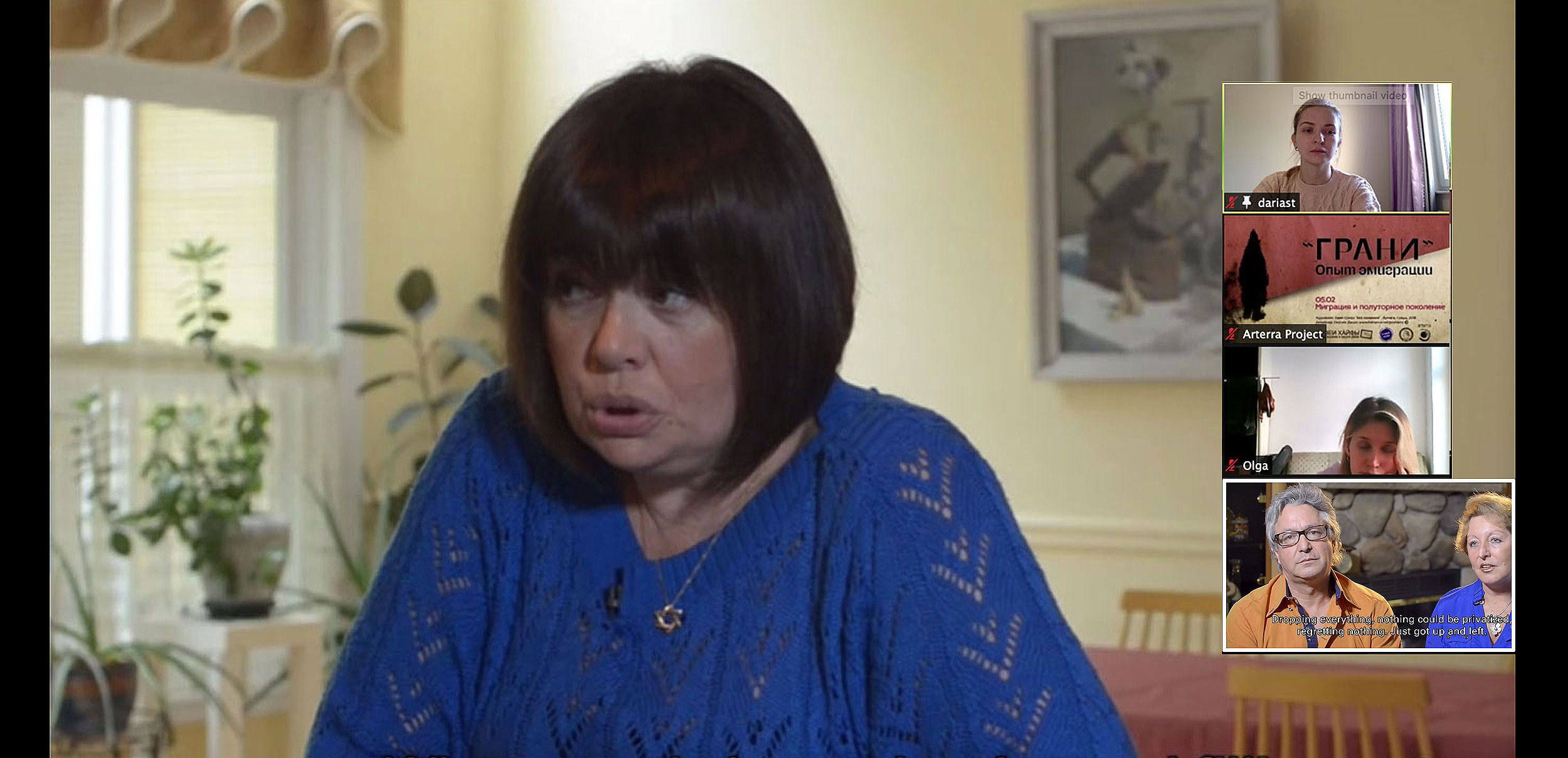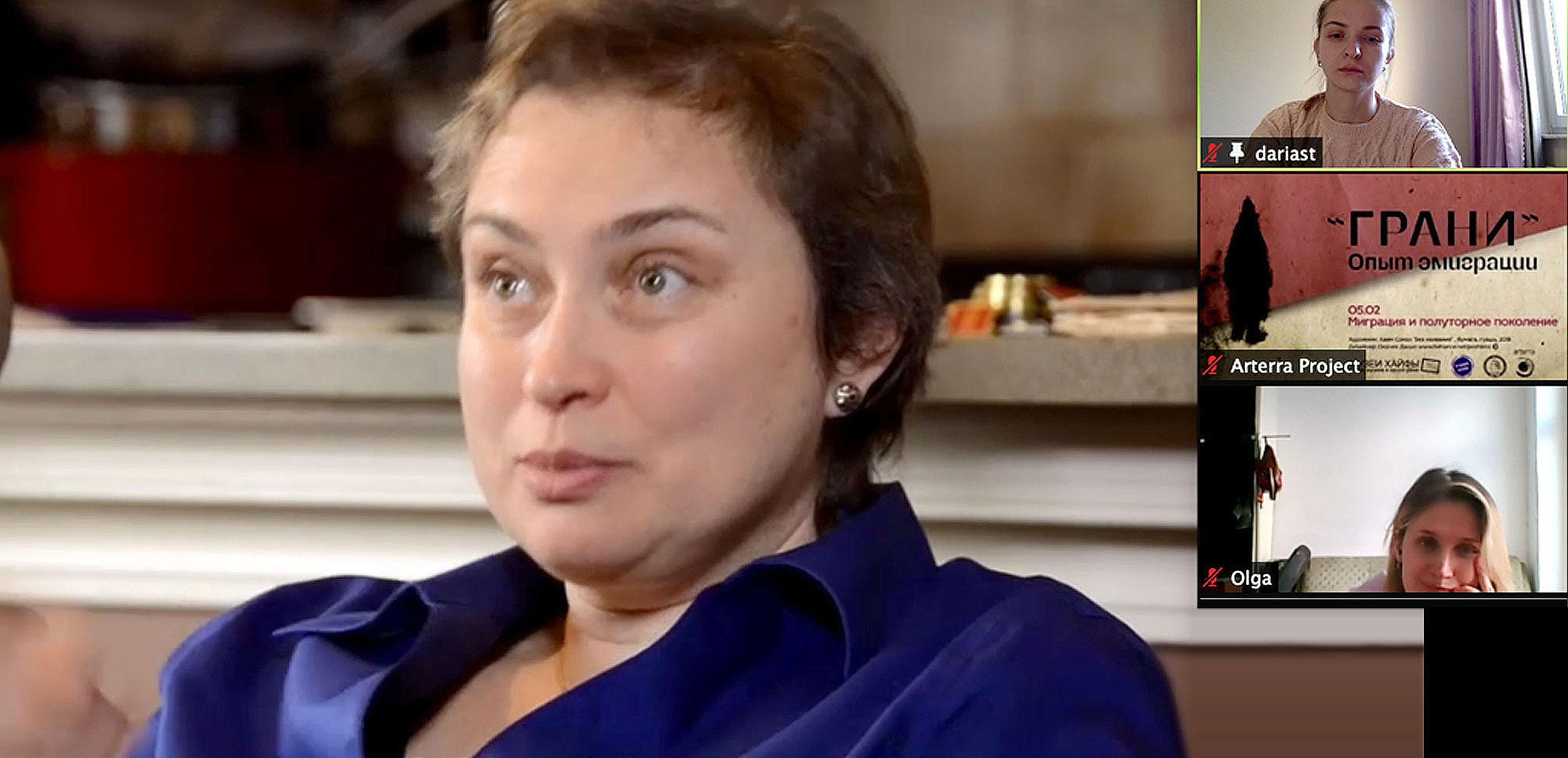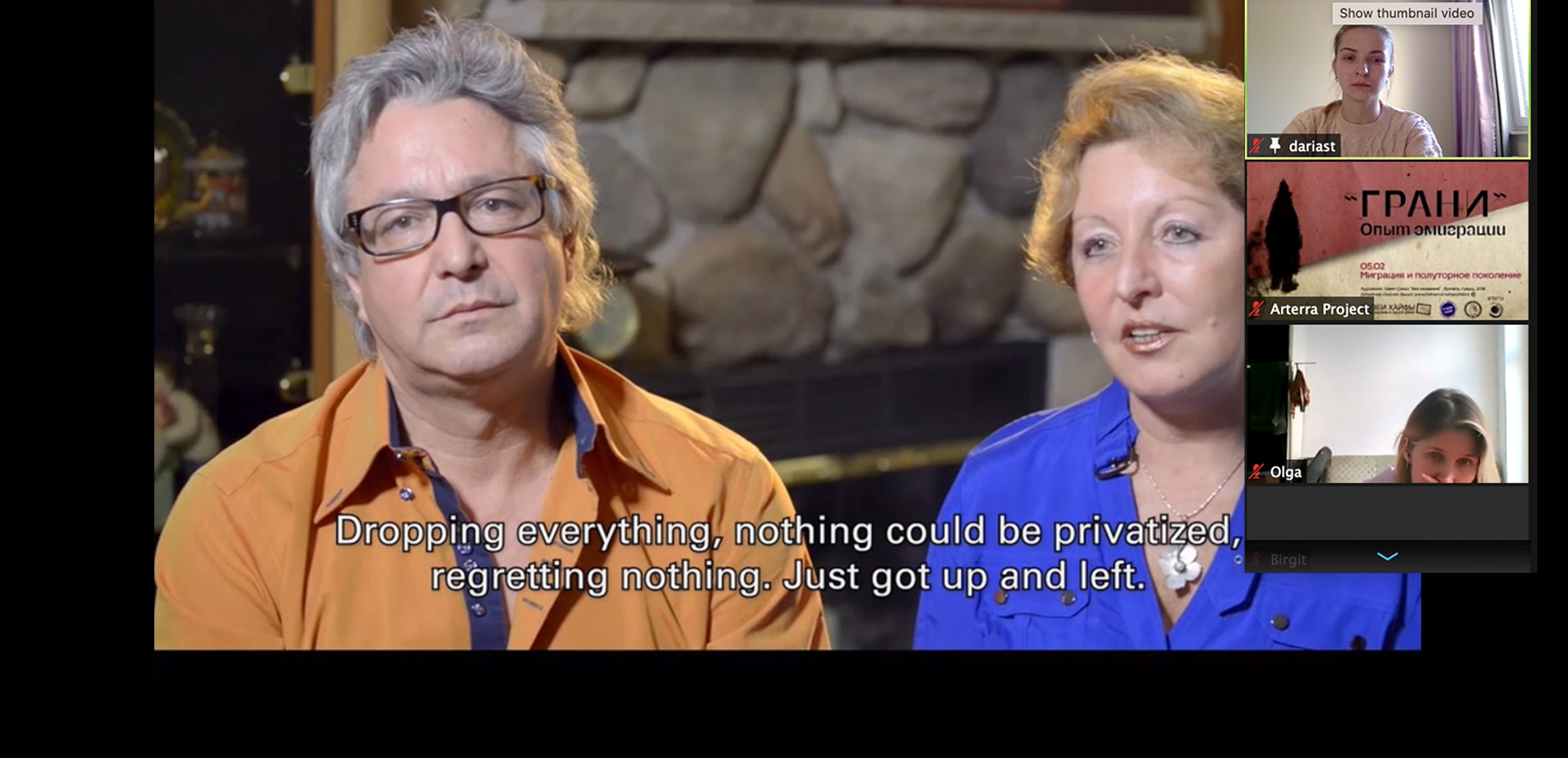Post-Soviet Immigrant Identity in Contemporary Germany and Israel
In this one-year bilateral project, young people who grew up in the former Soviet Union will examine their experiences of migration and integration in Israel and Germany.
Through discussions and creative exchange within the groups in Germany and Israel, between the two groups and with the organizers, participants reflect on similarities and differences in their experiences in both countries.
Participants
5 – 10 Russian-speaking migrants each from Haifa and Giessen
Participants from the cultural and academic field
Project content
This project looks at the challenges and problems of migration experience within the Russian speaking communities in Israel and Germany. In seminars held simultaneously in both countries (on- and offline) the immigration experiences of young people who grew up in the former Soviet Union are discussed in intercultural dialogs. Two bilateral workshop, which will be held in the Giessen Center for East European Studies at the Justus-Liebig University Giessen and at Haifa City Museum are intended to expand the discussion to include individuals from the cultural and academic field.
Project methods
In the seminars, films about migration experiences that have been recorded by filmmakers who are themselves immigrants will be discussed. Key issues related to immigration will be examined. The main focus here is the influence of specific cultural and social backgrounds on the integration into the new social cultural and political contexts in each case.
Project goals
The development of an interactive online platform at the end of the project. Migrants from the former Soviet Union will be given the opportunity to reflect on the process of their immigration to Israel and Germany. The exchange can be used as a basis for developing new ideas for social and cultural integration, and new impetus can be given for localization in their respective communities.
Through discussions and creative exchange within the groups in Germany and Israel, between the two groups and with the organizers, participants reflect on similarities and differences in their experiences in both countries.
Participants
5 – 10 Russian-speaking migrants each from Haifa and Giessen
Participants from the cultural and academic field
Project content
This project looks at the challenges and problems of migration experience within the Russian speaking communities in Israel and Germany. In seminars held simultaneously in both countries (on- and offline) the immigration experiences of young people who grew up in the former Soviet Union are discussed in intercultural dialogs. Two bilateral workshop, which will be held in the Giessen Center for East European Studies at the Justus-Liebig University Giessen and at Haifa City Museum are intended to expand the discussion to include individuals from the cultural and academic field.
Project methods
In the seminars, films about migration experiences that have been recorded by filmmakers who are themselves immigrants will be discussed. Key issues related to immigration will be examined. The main focus here is the influence of specific cultural and social backgrounds on the integration into the new social cultural and political contexts in each case.
Project goals
The development of an interactive online platform at the end of the project. Migrants from the former Soviet Union will be given the opportunity to reflect on the process of their immigration to Israel and Germany. The exchange can be used as a basis for developing new ideas for social and cultural integration, and new impetus can be given for localization in their respective communities.
UN Sustainable Development Goals (SDGs)







Cooperation partners
Tikshoret Ptucha (Haifa)
arterra (Haifa)
Haifa Museums (Haifa)
Justus-Liebig University Giessen (Giessen)
Tikshoret Ptucha (Haifa)
arterra (Haifa)
Haifa Museums (Haifa)
Justus-Liebig University Giessen (Giessen)










